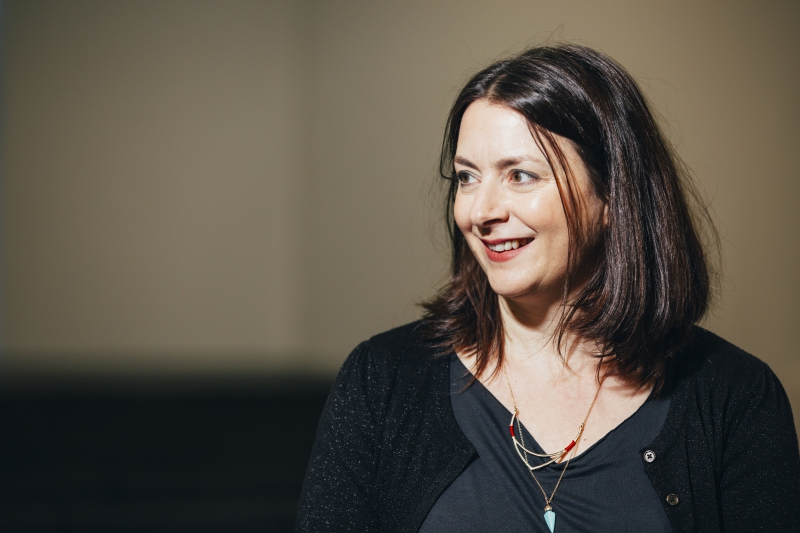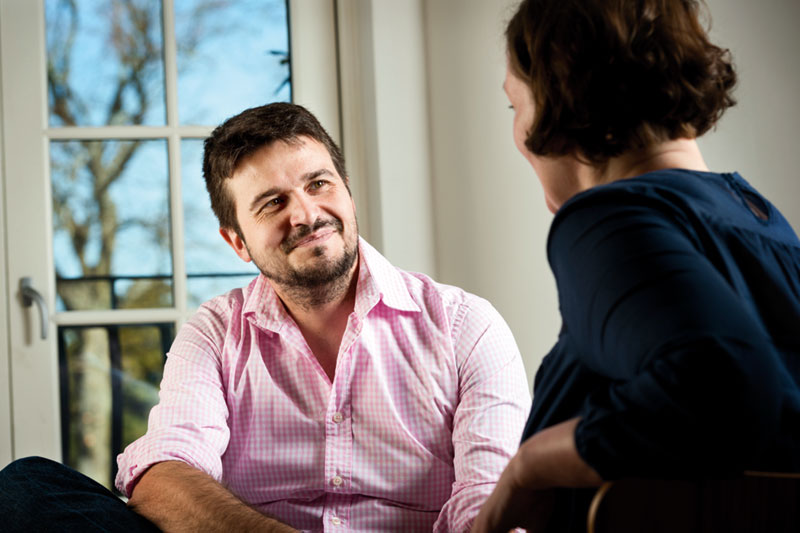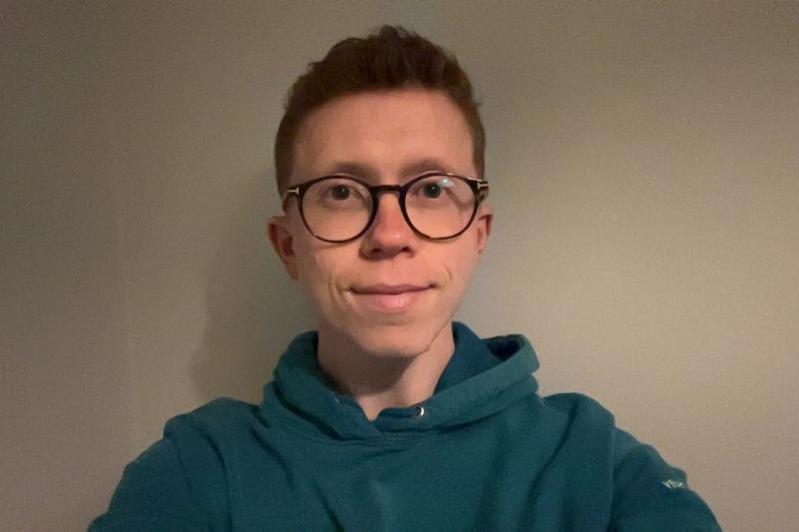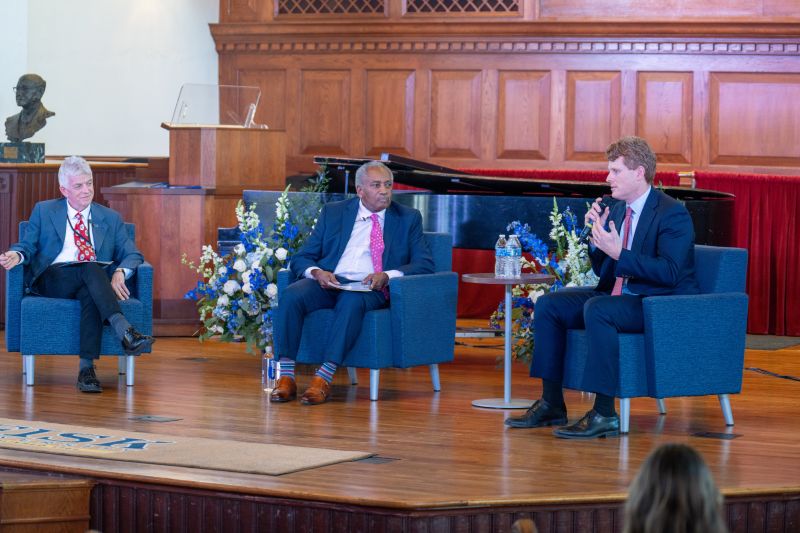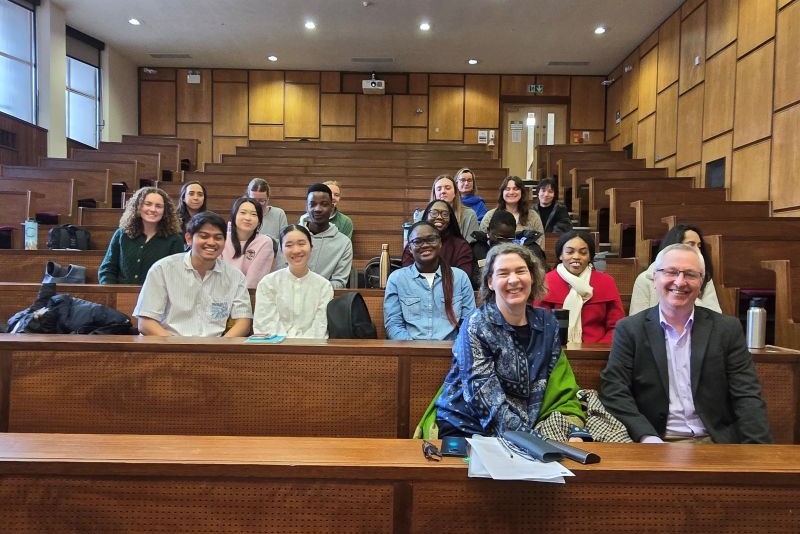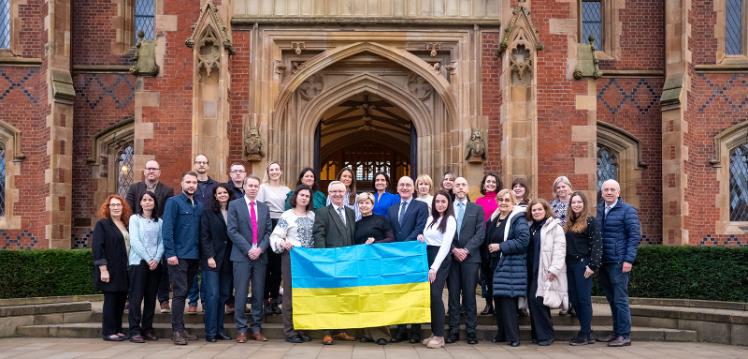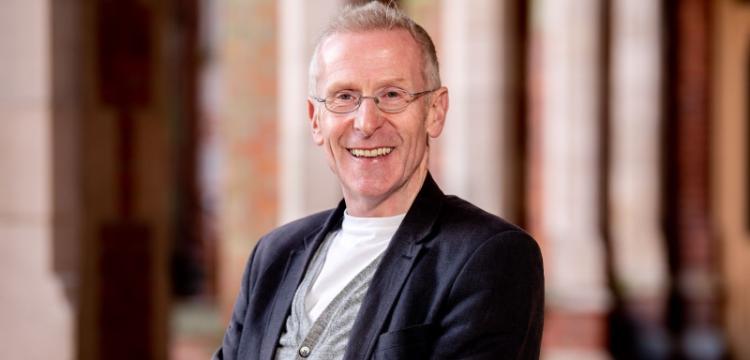Social Work
Social work is recognised as “a practice-based profession and an academic discipline that promotes social change and development, social cohesion, and the empowerment and liberation of people” (International Federation of Social Workers, 2014).
Social workers aim to promote positive change for individuals, groups, and communities, drawing on principles of social justice, respect for equality, diversity, inclusion, and human rights.
Social work programmes at Queen’s are taught by a team of academics who are qualified and registered social workers. Everyone in the social work team is actively involved in research across a range of social issues and also engaged with practice development, to promote best outcomes for individuals, families and communities.
In the most recent assessment of research quality (REF, 2021), 88% of research submitted to the social policy and social work Unit of Assessment (UoA) by criminology, social policy, sociology, and social work, was judged to be world leading or internationally excellent. This endorsement of the quality of our research and its impacts in areas such as the penal system, mental health, and trauma; draws attention to strong collaborative networks in and between disciplines such as health, social care, and criminal justice. We are delighted that social work, social policy (which also includes sociology and criminology) has been ranked at 12th in the UK (Times Higher Education Social Work and Social Policy UoA table).
IN THE UK
(COMPLETE UNIVERSITY GUIDE 2026)IN THE UK
(TIMES AND SUNDAY TIMES GOOD UNIVERSITY GUIDE 2026)IN THE UK
(DAILY MAIL UNIVERSITY GUIDE 2026)IN THE UK
(GUARDIAN UNIVERSITY GUIDE 2026)What is Social Work?
BSW graduate Aoife explains why she studied to be a Social Worker and talks about her career since graduating.
STUDY
Social work is a profession that engages with people and structures to address difficulties, challenges, and enhance wellbeing. It involves working with complex social problems and understanding needs, rights, and risks. The academic teaching and the practice learning opportunities offered as part of the qualifying degree, align with professional requirements which are premised on supporting, empowering, and promoting the rights of marginalised and/or vulnerable individuals and groups.
BSW Relevant Graduate Route
BSW Relevant Graduate Route student Sarah Hayes explains why she chose to study social work and her experiences on the course.
KEY THEMES
We are committed to research that enhances understanding of the needs of vulnerable individuals and groups within our society, supports the development of effective responses at individual, family and/or community levels, and promotes empowerment, rights, and social justice. Members of the Social Work Subject group are involved in research addressing the following areas:
|
|
Social Work academics are members of the SSESW research centres and also contribute to wider interdisciplinary research groupings at Queen’s, including the Centre for Children’s Rights.
Academic Staff
| Name | Area of Expertise | Telephone | |
|---|---|---|---|
| Brendan Armstrong |
Cognitive Behaviour Therapy |
brendan.armstrong@qub.ac.uk | |
| Professor Paul Best |
The use of immersive and digital technologies, such as VR and 360 video for therapeutic practice as well as professional social work training; The application of cognitive behavioural therapy for conditions such as PTSD/cPTSD, Social Anxiety Disorder, Panic Disorder and Depression; New approaches to coproduction and participatory analysis. |
p.best@qub.ac.uk |
+44 (0)28 9097 3256 |
| Professor Lisa Bunting | Child welfare and maltreatment with specific interests in the impact of childhood adversity across the life-course; The experiences of child victims/witnesses within the criminal justice system; UK child protection and criminal justice policy. | l.bunting@qub.ac.uk | +44 (0)28 9097 1482 |
| Dr Patricia Carlisle | Research: religion and spirituality in mental health, the interfaces of religion and spirituality, faith based organisations and mental health services. | p.carlisle@qub.ac.uk | +44 (0)28 9097 1379 |
| Jessica Cushnan | The use, implementation, and evaluation of digital and immersive technologies within health and social care settings and social work education, including virtual reality and 360-degree video, for assessment, treatment, training, and reflective practice; co-production, and ethical, legal, and regulatory implementation, ensuring alignment with relevant legislation and governance frameworks. | ||
| Professor Gavin Davidson | Mental health; Mental health social work and the effectiveness of mental health services; The social determinants of mental health; Human rights and mental health/mental capacity legislation. | g.davidson@qub.ac.uk | +44 (0)28 9097 3151 |
| Dr Michael Duffy | Mental health linked to trauma and conflict; The development of evidence based psychological interventions, in particular cognitive therapy for conflict related PTSD. | michael.duffy@qub.ac.uk | +44(0)28 9097 3298 |
| Professor Davy Hayes | Service user experiences of the child protection and criminal justice systems; Involvement of family members in child protection and child welfare processes and methods; Practice and experiences of professionals who operate the child protection system; Social work assessment and decision making in child welfare. | d.hayes@qub.ac.uk | +44 (0)28 9097 5971 |
| Professor Kathryn Higgins | Substance use and addictive behaviour; Programme evaluation/implementation science. | k.m.higgins@qub.ac.uk | +44 (0)28 9097 5286 |
| Professor Berni Kelly | Disability; child and youth identities; children in care and leaving care; participatory research. | b.r.kelly@qub.ac.uk | +44 (0)28 9097 1486 |
| Dr Rachel Leonard |
Maternal and Family Mental Health; Paternal engagement; Family focused mental health interventions; Early years and child welfare; Evidence Synthesis; Statistical modelling. |
rachel.leonard@qub.ac.uk | |
| Professor Mandi MacDonald |
Children and young people in alternative care and adopted from care; Supporting the families of children in need; Collaboration with practitioners and families to translate research into innovative practice solutions; Interpretative qualitative research methods. |
m.macdonald@qub.ac.uk | +44 (0)28 9097 3179 |
| Dr Danielle Mackle | d.mackle@qub.ac.uk | +44 (0)28 9097 1245 | |
| Dr Gerry Marshall |
Children and young people who are looked after especially with respect to residential child care; Identity formation of young people growing up in children's homes and leaving care facilities; The interface between children's rights and delivery of child care services. |
gerard.marshall@qub.ac.uk | +44 (0)28 9097 3220 |
| Dr Paul McCafferty | Decision-making, knowledge acquisition and utilisation, children’s rights, and social work education. | p.mccafferty@qub.ac.uk | +44 (0)28 9097 3310 |
| Dr Danielle McIlroy |
Learning Disability; Mental Health; Mental Health/Mental Capacity and Human Rights legislation; Decision-making processes; Social inclusion. |
danielle.mcilroy@qub.ac.uk | |
| Jennifer McKinney |
Systemic interventions in various contexts, working with complexity, social justice, creative practices, questioning skills, effective social work interventions, developing culturally competent interventions, working with illness and bereavement, working with communities, loneliness/belonging/identity, and participative, narrative and ethnographic research methodologies. |
jennifer.mckinney@qub.ac.uk | |
| Professor Lorna Montgomery |
Adult safeguarding including elder abuse, the criminal investigative processes, legislation and policy development; The development of culturally competent interventions; Therapeutic interventions for bereavement; Mental health and mental capacity; Parenting capacity assessments; Social work education and practice experience. |
l.montgomery@qub.ac.uk | +44 (0)28 9097 1480 |
| Dr Suzanne Mooney |
Systemic practice and systemic family psychotherapy in different contexts; trauma informed care; improving services for care experienced children and young people, their families and caregivers; the impact of adversities and inequalities on the lives of children, adults and families; child welfare social work; living with illness and supportive healthcare; action, participatory and narrative research methodologies. |
s.mooney@qub.ac.uk | +44 (0)28 9097 3641 |
| Dr Patricia Nicholl |
Children in care; Family support; Education of children in care; Cultural competence in Social Work; Multi-agency working in children’s services; Early intervention and safeguarding of children |
patricia.nicholl@qub.ac.uk | |
| Professor Audrey Roulston |
Palliative Care Social Work including living with life-limiting illness, decision-making, advance care planning, and supporting communication at end of life. Bereavement assessment, interventions, and practice standards. Student well-being, mindfulness, supervision, values-based recruitment and failing students. |
a.roulston@qub.ac.uk | +44 (0)28 9097 5966 |
| Professor Karen Winter |
Children in care and their rights, needs and wellbeing; communication and relationships with children in care; support services for families and children known to social services; innovative qualitative methods. |
k.winter@qub.ac.uk | +44 (0)28 9097 3917 |
Research Staff |
|||
| Dr Rachel Leonard | Maternal and Family Mental Health; Paternal engagement; Family focused mental health interventions; Early years and child welfare; Evidence Synthesis; Statistical modelling. | rachel.leonard@qub.ac.uk | |
| Dr Nina O'Neill | Randomised Controlled Trials; clinical drug trials; exploratory research with mixed methods design. | nina.oneill@qub.ac.uk |
SOCIAL WORK TUTORS
| Name | |
|---|---|
| Mary Anderson | mary.anderson@qub.ac.uk |
| Dervla Boylan | d.boylan@qub.ac.uk |
| Aoife Donnelly | |
| Laura Doyle | laura.doyle@qub.ac.uk |
| James Draper | james.draper@qub.ac.uk |
| Jillian Martin | jillian.martin@qub.ac.uk |
| Mary McColgan | m.mccolgan@qub.ac.uk |
| Orlaith McGibbon | orlaith.mcgibbon@qub.ac.uk |
| Lorraine Robinson | l.robinson@qub.ac.uk |
| Gretta Thompson |
KEY RESEARCH PROJECTS
ENGAGEMENT
Social Work articles from our current Newsletter



